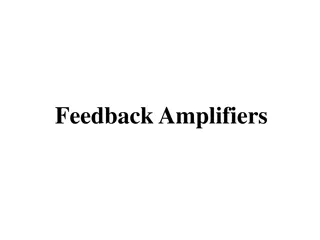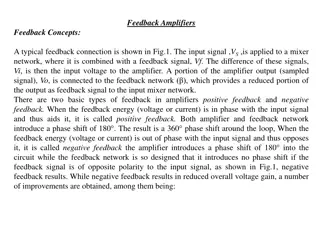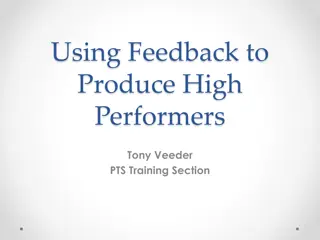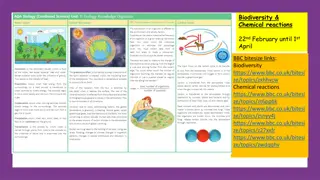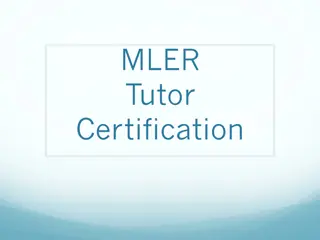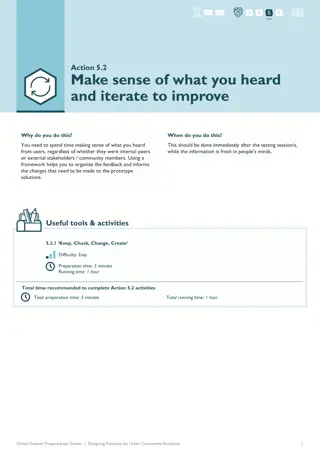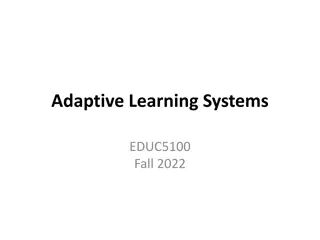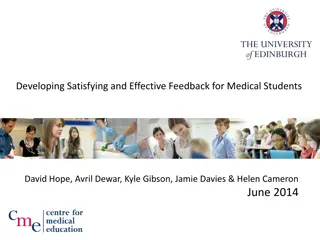
Maximizing Tutor Feedback: A Student's Guide to Improvement
Enhance your academic performance with effective tutor feedback. Learn the benefits, types, formats, and tips for understanding and interpreting feedback, along with strategies to make the most of it in your studies.
Download Presentation

Please find below an Image/Link to download the presentation.
The content on the website is provided AS IS for your information and personal use only. It may not be sold, licensed, or shared on other websites without obtaining consent from the author. If you encounter any issues during the download, it is possible that the publisher has removed the file from their server.
You are allowed to download the files provided on this website for personal or commercial use, subject to the condition that they are used lawfully. All files are the property of their respective owners.
The content on the website is provided AS IS for your information and personal use only. It may not be sold, licensed, or shared on other websites without obtaining consent from the author.
E N D
Presentation Transcript
Using tutor feedback www.kent.ac.uk/student-learning-advisory-service
Benefits of feedback Benefits of feedback Feedback from your tutor will help you identify: The strengths of your work what was good about it Weaknesses of the work what undermined the effectiveness of the assignment Areas for improvement how to improve your performance
Types of feedback Types of feedback Generally, there are two types of feedback: Formative feedback advice on how to improve current or future work Summative feedback a final mark on how well you have met assessment criteria
Format of feedback Format of feedback You may receive feedback in different ways: Margin notes on an assignment Feedback or assessment sheet Verbally (eg. during a tutorial)
What feedback may cover What feedback may cover Academic content Critical engagement Organisation Communication Technical academic conventions
Understanding feedback Understanding feedback Some feedback may be easy to understand: Incorrect referencing here You have given no evidence for this statement Is there a counterview to this idea?
Interpreting feedback Interpreting feedback Some comments are less explicit: This is confusing Don t understand Really?
Making the most of feedback Making the most of feedback Short and long-term strategies: Your next assignment - Focus on one/two key areas for improvement - Plus all easy improvements (eg. check spelling) On-going skills development - Effective reading and note-taking, Critical analysis, Time management and more
Further resources Further resources For guidance on marking criteria and grade descriptors, and on the broader range of skills needed to succeed at university, please go to the SLAS webpages http://www.kent.ac.uk/student-learning-advisory-service where you can: Book a one-to-one appointment with a SLAS adviser Attend a range of Online Bitesize Skills Development sessions Remember: Feedback is a valuable resource. So, collect it, understand it, and use it to improve.
Get in touch Get in touch SLAS CONNECT To book an appointment: www.kent.ac.uk/student-learning-advisory-service learning@kent.ac.uk SLASkent KentUniSLAS SLASkent



